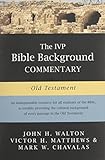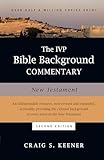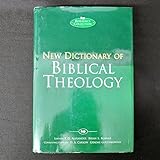Hi friends,
One of the most common questions in our community is, “What does this passage of the Bible mean?”
I thought it would help to outline some of the important steps we can take to interpret the Scriptures properly.
Pray
When we study the Bible, we want to be intentionally connected to God.
We experience God’s word as a whole person - heart, mind, soul, and will - in the context of our community and social situation.
By starting in prayer, we ask God to work within our innermost being.
We want to be wholehearted worshippers of God.
Approach the text
- Who was the author?
- Who was the original audience?
- What happened before and after the text?
Identify the genre
Common genres include:
- Historical narrative
- Law/instruction
- Wisdom literature
- Poetry
- Prophecy
- Apocalypse
- Gospels
- Epistles
- Parables
Identify how the genre affects how you read the text.
Read the text
- Read the passage slowly and carefully multiple times in one translation.
- Read the passage in different translations.
- If you encounter unfamiliar terms, look up their definitions.
Evaluate the text
Pay attention to grammar. For instance, look for connecting words like “for” or “therefore.”
Note literary devices: metaphors, hyperbole, symbolic speech.
Identify the main point
-
What is the text talking about?
-
What is the text saying about what it is talking about?
For instance:
“This text is about God’s character.”
“It says that God’s character is loving.”
Consult commentaries
We always learn in community.
Avoid commentaries that take a modern interpretation of the text. This is anachronistic. We don’t want to know what the text means as if it was written by Americans to Americans (or Nigerians to Nigerians, etc.). We want to know what was meant when it was originally given.
Reliable, thoughtful commentaries will explain the culture and context of the text in its own time.
Reach for the highest level of academic and/or technical commentaries you can access. Libraries are a great resource!
Broaden your perspective
Think about what the text means in light of the storyline of the Bible.
How does this text make sense in light of who Jesus is and what Jesus did?
Check cross-references.
For instance, Matthew 5:7 is a short verse about mercy. In Matthew 18:21-35, Jesus tells a parable about mercy.
Look back (to earlier in the Old Testament) and forward (to the New Testament).
Avoid common errors
Some examples:
- Jump to a conclusion that fits our biases
- Ignore, rather than wrestle with, difficult passages
- Literalism - taking figurative or symbolic language as literal
- Allegory - spiritualizing passages that are meant to be literal
- Folly - not noticing how the Scriptures are forming us to be wise and mature
- Moralizing - flattening the text into moral imperatives (of course, the Bible teaches us ethics!)
- Don’t ask for help - assume you have all the answers
Write down your interpretation
Writing creates clarity. We work through the fog - and we move past our immediate reactions to the text - by writing out what the text means.
After reading the text and reliable commentaries, writing is how you synthesize what you’ve learned. It enables you to “own” what you’ve learned.
Ask for feedback
Rarely do we get to the right interpretation on our first attempt. Ask others - in your local context or in Uncommon Pursuit - for feedback on your understanding.
Instead of becoming proud, we want our time with God to cultivate humility and love.
What would you add?
What process helps you to interpret God’s word in an accurate manner?
It’s important that we use our very best to study the Bible. Otherwise, we risk taking God’s name in vain. We will say, “God said…” in error. This can be damaging to ourselves - and to others.


